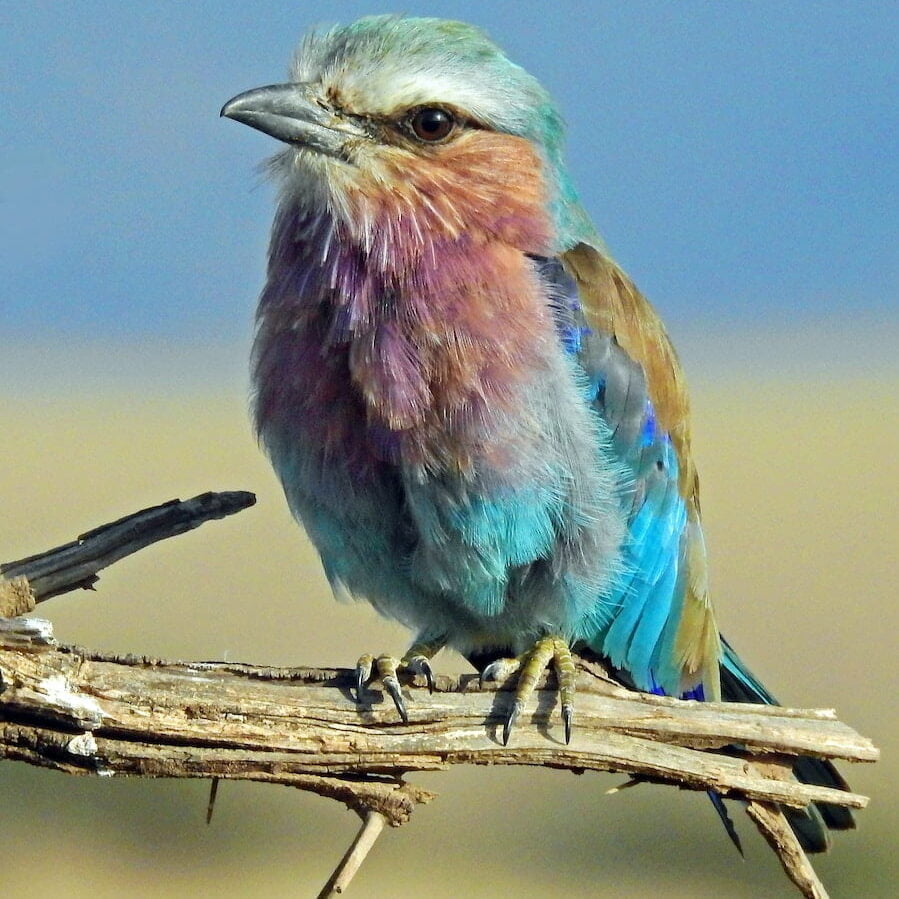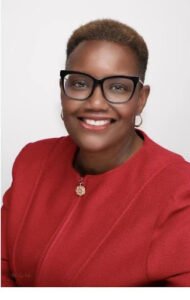Celebrating Neurodiversity: Gifted with Neurological Differences

Throughout history, many extraordinary individuals have emerged from the world of entertainment, transcending their fame and using their influence to make a lasting impact on humanity. These compassionate celebrities have not only embraced their own neurological differences but have also championed the strengths and challenges of neurodiversity, fostering understanding, acceptance, and empathy across the globe.
By courageously sharing their personal stories and advocating for change, they have inspired countless others to see beyond the labels and embrace the unique qualities that make each of us extraordinary.
In this article, we will explore the lives and accomplishments of some of these remarkable celebrities, highlighting how they have turned their neurological differences into powerful forces for positive change in the world.
Table of Contents
Overlooked: the human story behind neurodiversity
The media plays a crucial role in shaping public perception and understanding of various issues, including neurodiversity. While there has been progress in recent years, much of the media’s focus still tends to gravitate towards sensational stories and headlines. As a result, the human stories behind neurodiversity, which often involve immense struggle, resilience, and love, are frequently overlooked.
One such narrative that deserves our attention and empathy is that of single mothers caring for children with neurological differences. These mothers navigate a challenging path, often juggling multiple roles and responsibilities while striving to provide the best possible care for their children. Despite their incredible strength and determination, their stories rarely make the headlines or receive the recognition they deserve from society.
Single mothers of children with neurological differences face unique challenges that can sometimes seem insurmountable. They must navigate a complex web of medical appointments, therapy sessions, and educational accommodations, all while trying to maintain a stable home environment and provide for their family’s basic needs. The emotional toll of these responsibilities can be overwhelming, as these mothers bear the weight of their children’s struggles, as well as their own.
In addition to the practical challenges, single mothers often grapple with a sense of isolation and loneliness, as they may lack a support network or feel misunderstood by friends and family who may not fully comprehend the realities of raising a child with neurological differences. These mothers also face societal stigma, as their children’s behaviors may sometimes be misinterpreted or unfairly judged by others.
Despite these obstacles, single mothers of children with neurological differences exhibit a remarkable resilience and tenacity. They become fierce advocates for their children, fighting for their rights and ensuring that they have access to the resources and opportunities they need to thrive. Their love and dedication serve as a powerful testament to the strength of the human spirit and the unbreakable bond between a mother and her child.
The media, as a significant influencer of public opinion, has a responsibility to shed light on these human stories, giving a voice to the single mothers who devote their lives to caring for their children with neurological differences. By sharing their experiences, we can build a more compassionate and understanding society that recognizes and appreciates the incredible sacrifices these mothers make daily.
In order to support these mothers and their children, we must also advocate for policies and programs that provide them with the necessary resources, such as access to affordable healthcare, mental health services, educational accommodations, and financial support. We must also encourage the creation of community networks and support groups, which can offer invaluable emotional support, understanding, and camaraderie for these mothers who often feel isolated in their journey.
It is time to bring these untold stories to the forefront, and by doing so, recognize the incredible strength and courage of single mothers caring for children with neurological differences. In acknowledging their struggles, we pave the way for a more compassionate, inclusive, and supportive society, where every individual is valued and celebrated for their unique qualities and contributions.
Gifted with neurological differences: a compassionate shift in society
The rich tapestry of human cognition is woven with a multitude of threads, each representing the unique neurological differences that define us. Neurodiversity, a concept that recognizes and embraces this natural variation in human cognition, is gradually gaining acceptance and understanding within our society. This shift is essential, as it acknowledges the incredible potential of individuals who are gifted with neurological differences and encourages the celebration of their achievements.
Recent studies reveal that neurological differences, such as autism spectrum disorder (ASD), attention deficit hyperactivity disorder (ADHD), and dyslexia, are more prevalent than previously thought. This growing awareness has led to a more inclusive and compassionate approach towards individuals with neurological differences. It is crucial to foster understanding and support for these individuals, who possess unique talents and strengths that can contribute immensely to our society.
Human story plays a vital role in promoting a more accurate and empathetic portrayal of individuals with neurological differences. There are a few television shows and movies featuring a diverse range of neurological conditions, offering viewers a glimpse into their lives and experiences. But an increased representation in media will help break down stigmas and misconceptions, paving the way for a more inclusive society.
The corporate world, too, has taken significant steps towards embracing neurodiversity. Companies such as Microsoft, SAP, and Hewlett-Packard have launched specific hiring initiatives aimed at recruiting neurodiverse individuals, recognizing the unique talents and skills they possess. By creating more inclusive work environments, these initiatives not only support individuals with neurological differences but also contribute to a more diverse and innovative workforce.
Educational institutions are increasingly implementing accommodations for students with neurological differences, ensuring that all students have the opportunity to succeed. These measures, which include extended time on exams, alternative assessment methods, and access to assistive technology, help level the playing field and demonstrate a commitment to inclusion and support.
Advocacy and support organizations play a crucial role in promoting awareness, understanding, and support for individuals with neurological differences. Through their tireless efforts, these organizations create a more compassionate world where everyone’s unique strengths are recognized and valued.
Embracing neurodiversity allows society to tap into the unique strengths and perspectives of individuals with neurological differences. Their innovative solutions and unique ways of thinking can enrich various fields and contribute to the betterment of society. By celebrating their achievements, we foster empathy, understanding, and inclusivity, ultimately creating a world where each individual’s unique qualities are cherished and nurtured.
It is essential for our society to celebrate neurodiversity and the achievements of people gifted with neurological differences with compassion and understanding. By doing so, we foster a more inclusive, compassionate, and innovative world, where everyone’s unique strengths are recognized, valued, and allowed to flourish.
Gifted: neurodiverse celebrities making a difference
The world is filled with inspiring and talented people who have triumphed over their neurological differences and made their mark in various fields such as sports, arts, and business. By sharing their personal experiences and embracing their neurodiversity, these individuals have not only risen to success but have also contributed to fostering understanding and compassion towards neurological differences. Let’s take a moment to appreciate some of these remarkable people:
Sports
Caragh McMurtry- ex-Olympic Rower and Founder of Neurodiverse Sport, Caragh talks to host Catherine Asta about her late discovered autism diagnosis. How she was misdiagnosed as having bipolar disorder during what should have been the peak of her athletic career. And why she is now fiercely focused on changing the narrative around neuroinclusion and neurodiversity in sport through education, so that other neurodivergent athletes don’t suffer in the way she has.
Michael Phelps – A swimming legend and the most decorated Olympian of all time, Michael Phelps has ADHD. He has been open about his challenges and how swimming allowed him to positively harness his energy, serving as a beacon of hope and inspiration for many.
Simone Biles – A world-class gymnast and Olympic gold medalist, Simone Biles has ADHD. With courage and grace, she has used her platform to advocate for mental health awareness and dismantle the stigma surrounding neurological differences.
Arts
Dan Aykroyd – A gifted actor, comedian, and screenwriter, famous for his work on “Saturday Night Live” and “Ghostbusters,” Dan Aykroyd has Asperger’s syndrome, a form of autism. He attributes his unique sense of humour and attention to detail to his neurological difference, inspiring others to embrace their unique qualities.
Keira Knightley – The talented actress, known for her roles in “Pirates of the Caribbean” and “Pride and Prejudice,” has dyslexia. Knightley’s journey of overcoming her reading difficulties and achieving success in the film industry is a testament to her resilience and determination.
Steven Spielberg – A visionary filmmaker responsible for iconic movies like “Jaws,” “E.T.,” and “Jurassic Park,” Steven Spielberg has dyslexia. He has spoken about how his challenges with reading led him to hone his visual storytelling skills, transforming obstacles into opportunities.
Business
Sir Richard Branson – The innovative founder of the Virgin Group, including companies like Virgin Atlantic and Virgin Galactic, Sir Richard Branson has dyslexia. Branson has often shared how his neurological difference has enriched his creative thinking and problem-solving abilities, demonstrating the power of embracing one’s unique strengths.
Steve Jobs – The late co-founder of Apple Inc. and a trailblazer in the tech industry, Steve Jobs was reported to have had dyslexia. His creativity and ground-breaking ideas can be traced back to his distinctive way of thinking and processing information, serving as an inspiration for others with neurological differences.
These extraordinary gifted people remind us that neurological differences are not barriers to success, but rather unique traits that can be harnessed for greatness. By acknowledging and utilizing their exceptional strengths, they have made significant contributions to their respective fields. Their stories serve as a heartfelt reminder that everyone, regardless of their neurological differences, holds the potential to achieve remarkable feats with compassion and understanding.

Understanding neurodiversity
Celebrating Neurodiversity Week is a chance to understand the natural variation in human brains and cognitive functioning. Neurodiversity encompasses a wide range of neurological differences, including autism, attention deficit hyperactivity disorder (ADHD), dyslexia, and other conditions. Rather than viewing these differences as deficits, the neurodiversity movement promotes acceptance and understanding of these variations as part of the human experience. This article will explore some common neurological differences, highlighting their strengths and challenges.
Autism Spectrum Disorder (ASD)
Strengths:
- Attention to detail: Many autistic individuals possess a heightened ability to focus on specific details, which can be advantageous in fields such as computer programming, mathematics, and art.
- Pattern recognition: Autistic individuals may excel at identifying patterns in complex data sets, making them well-suited for roles in data analysis, research, and engineering.
- Honesty and loyalty: Autistic individuals are often known for their honesty and loyalty, which can foster trust and strong relationships in both personal and professional settings.
Challenges:
- Social communication: Autism can affect an individual’s ability to understand and navigate social situations, which may lead to difficulties in forming and maintaining relationships.
- Sensory sensitivities: Many autistic individuals experience heightened sensitivity to sensory input, which can make certain environments overwhelming or uncomfortable.
- Rigid thinking and routines: Autistic individuals may struggle with change and prefer routines, which can create challenges when adapting to new situations or environments.
Attention Deficit Hyperactivity Disorder (ADHD)
Strengths:
- Creativity and innovation: Individuals with ADHD often possess a creative and innovative mindset, which can lead to the development of unique solutions to problems.
- High energy levels: People with ADHD can have seemingly boundless energy, which, when channeled effectively, can contribute to high productivity.
- Adaptability: ADHD individuals may be more comfortable with change and able to quickly adapt to new situations or environments.
Challenges:
- Impulsivity: ADHD can lead to impulsive decision-making, which may result in negative consequences.
- Time management and organization: Individuals with ADHD often struggle with time management and organization, which can impact personal and professional success.
- Distractibility: People with ADHD may have difficulty maintaining focus, particularly in environments with multiple stimuli or distractions.
Dyslexia
Strengths:
- Visual-spatial abilities: Dyslexic individuals often possess strong visual-spatial skills, which can be beneficial in careers such as architecture, design, or engineering.
- Problem-solving: Dyslexia can lead to the development of unique problem-solving strategies, as individuals adapt to their learning differences.
- Empathy: Dyslexic individuals may develop a heightened sense of empathy due to their experiences navigating a world designed for neurotypical individuals.
Challenges:
- Reading and writing difficulties: Dyslexia can result in challenges with reading, writing, and spelling, which may impact academic and professional success.
- Slow processing speed: Dyslexic individuals may require more time to process and understand information.
- Memory difficulties: Dyslexia can impact short-term memory, leading to challenges with tasks such as note-taking or following directions.
Understanding and embracing neurodiversity is essential in fostering an inclusive society. By recognizing the strengths and challenges associated with various neurological differences, we can develop a more empathetic and supportive environment that allows all individuals to thrive.





